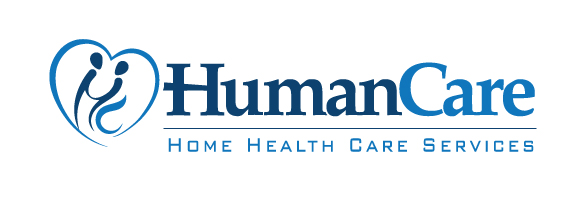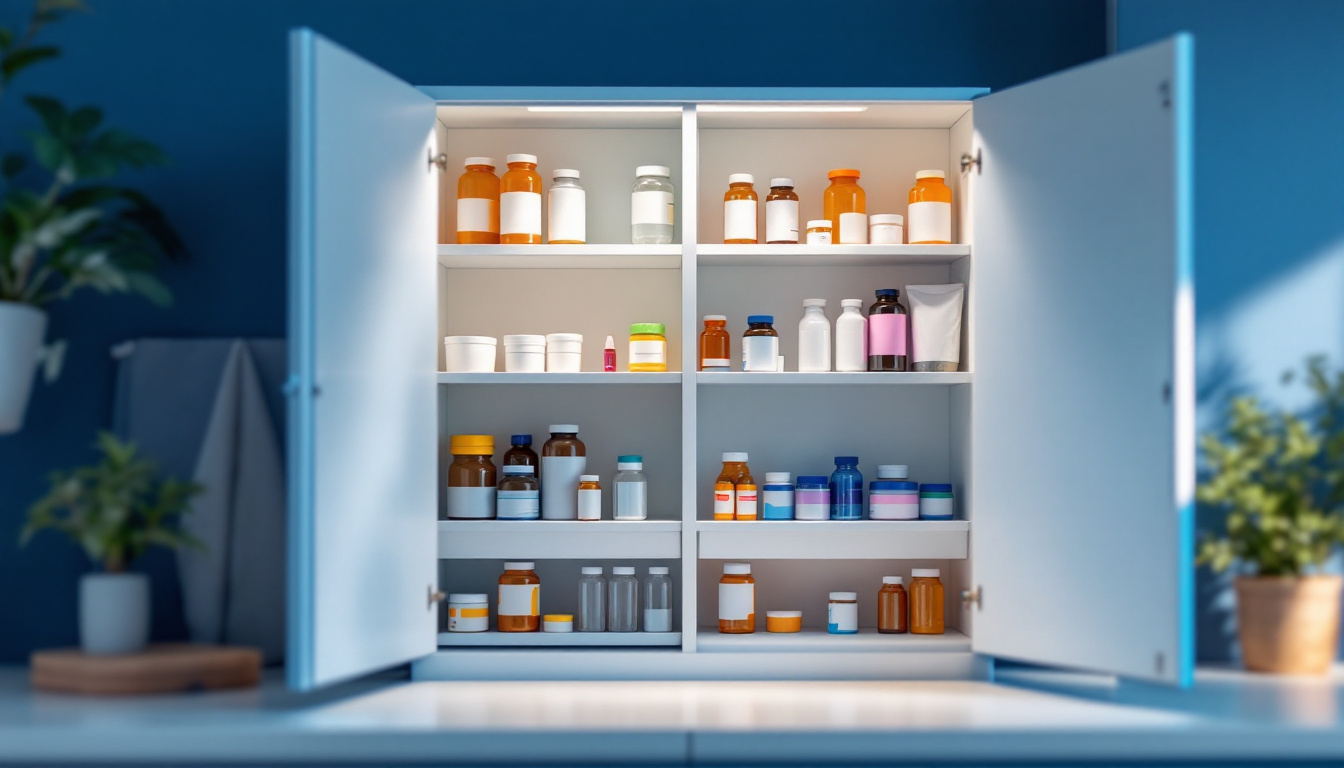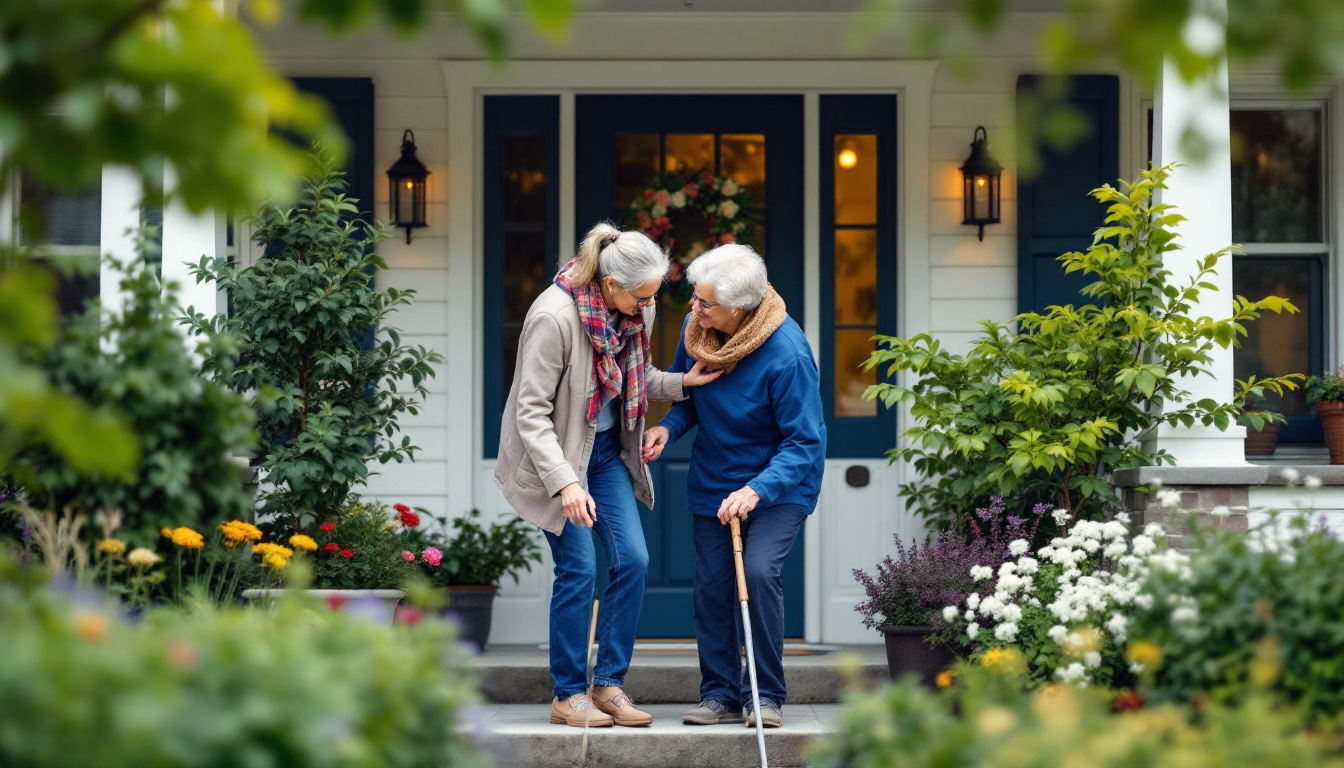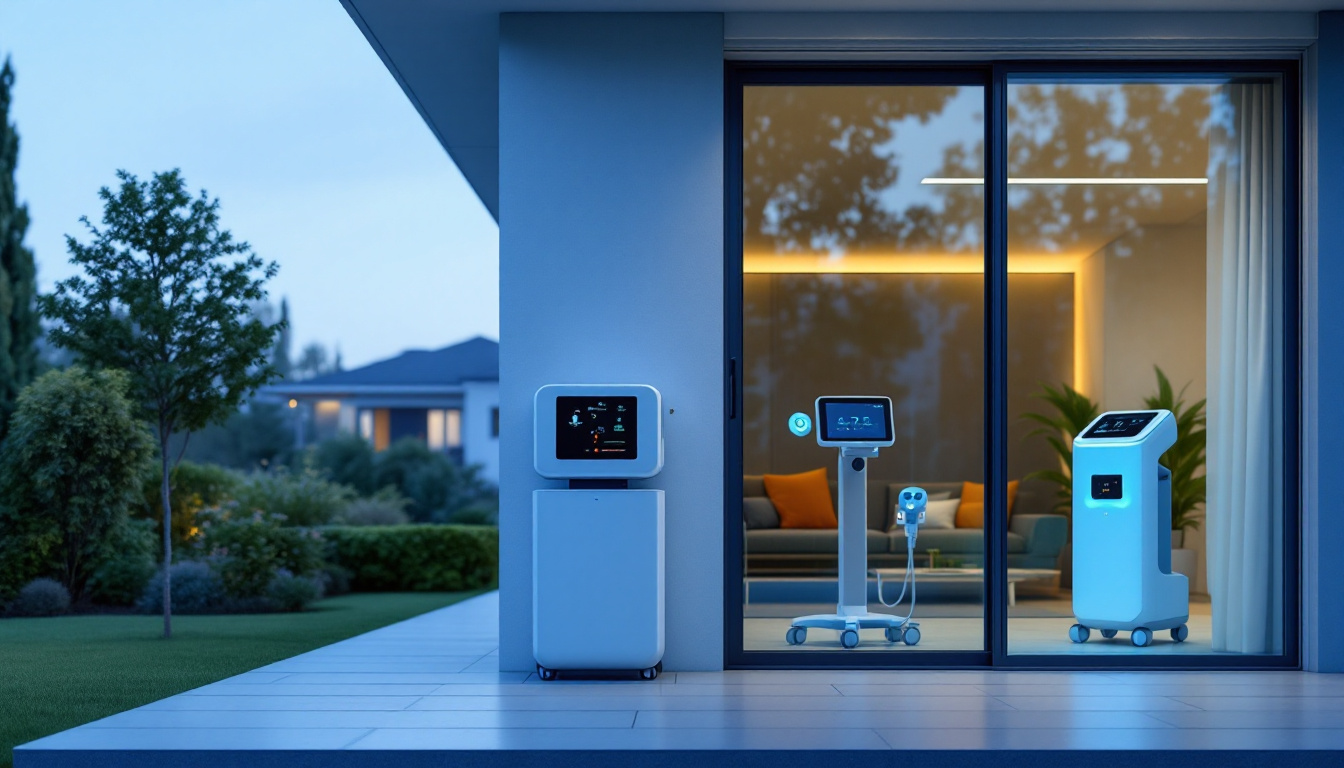Specialized Dental Care for Homebound Seniors
Discover specialized dental care for homebound seniors. Improve oral health and overall well-being. Get expert advice today!
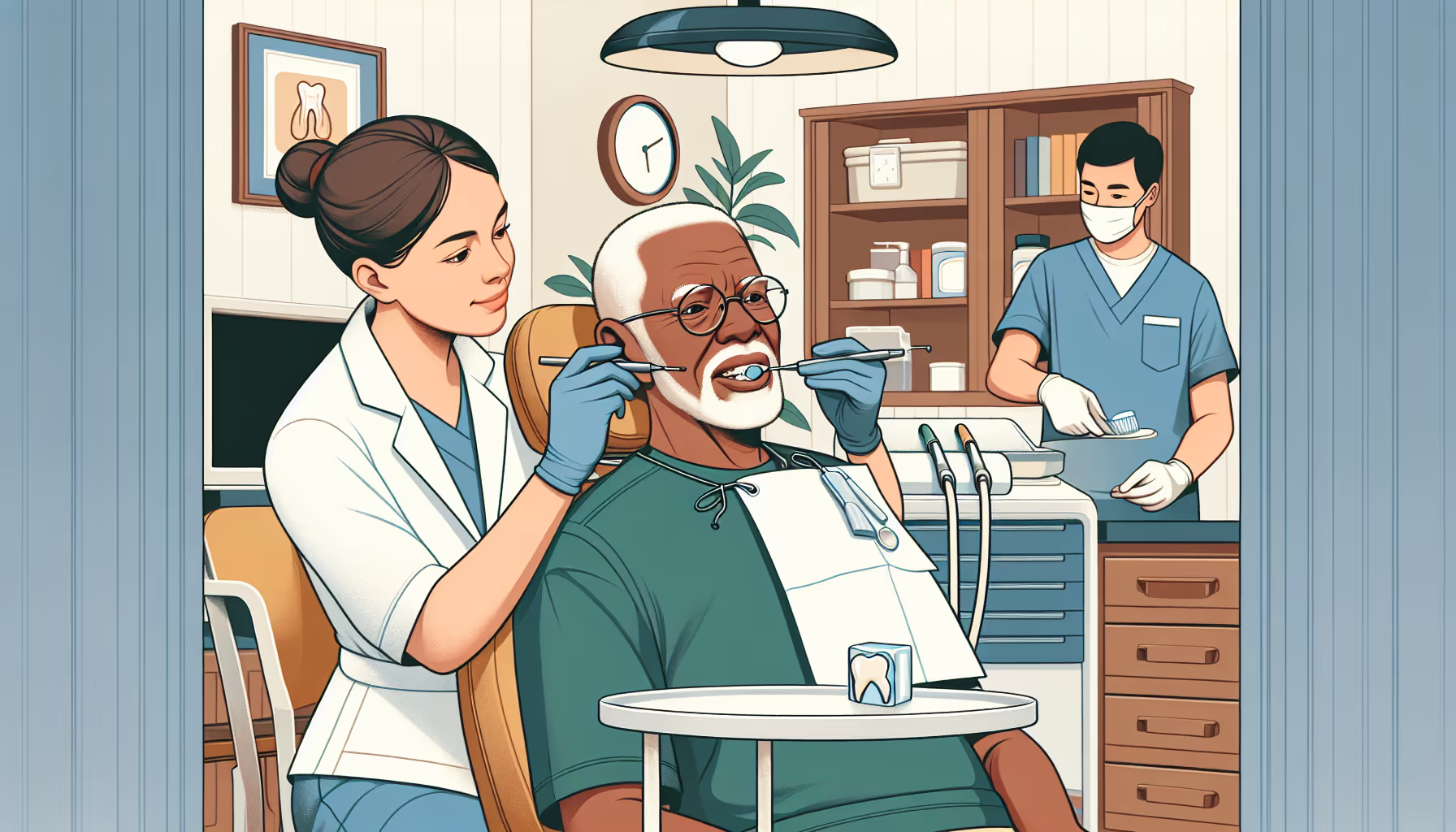
Understanding Dental Care for Seniors
Maintaining good oral health is essential for individuals of all ages, including seniors. As individuals age, their oral health needs may change, requiring specialized dental care to address their unique challenges and concerns. In this section, we will explore the importance of oral health for seniors and the impact of age on their oral health.
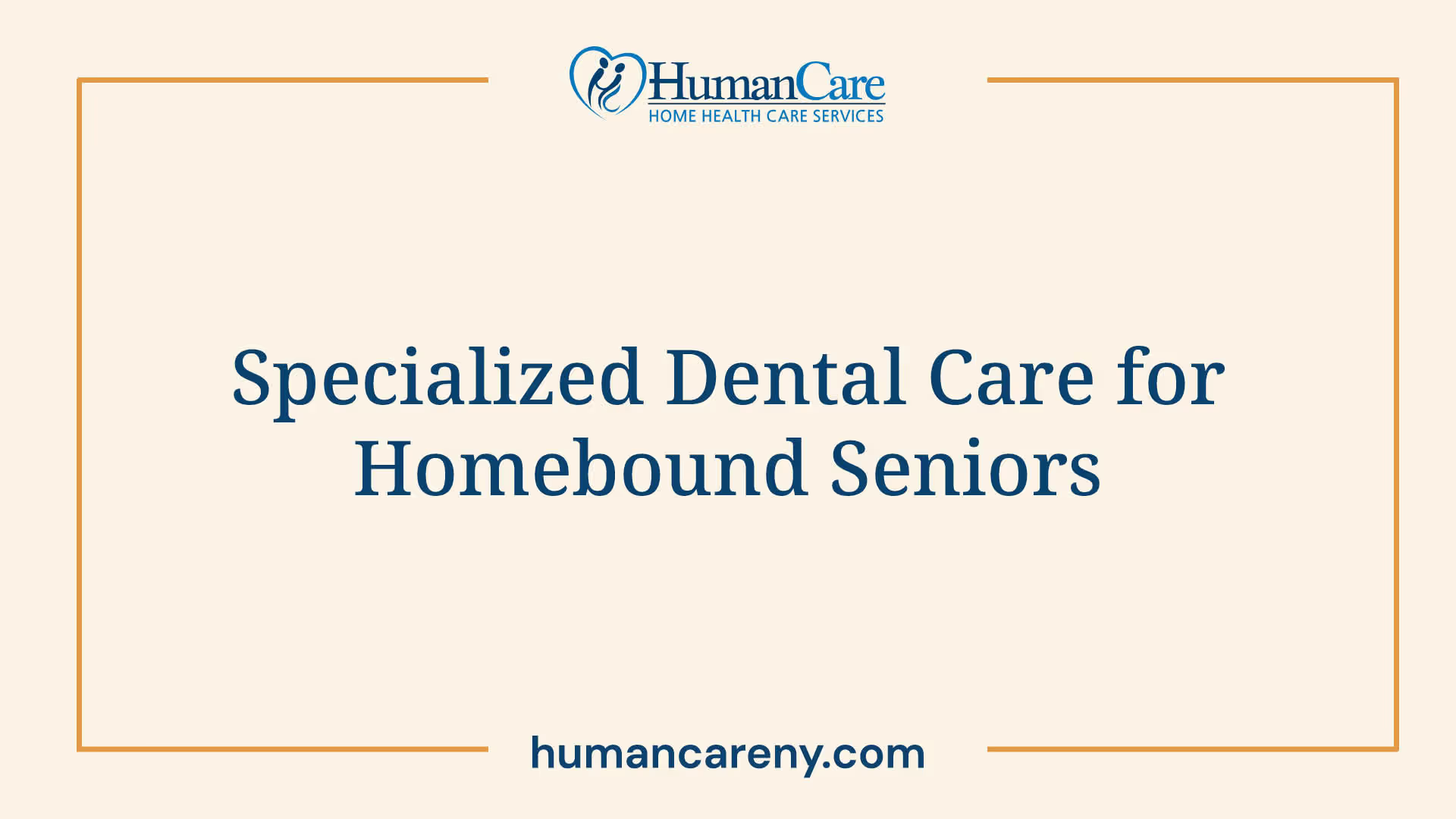
Importance of Oral Health
Oral health plays a crucial role in overall well-being, regardless of age. For seniors, maintaining good oral health is especially important as it can have a significant impact on their quality of life. Poor oral health can lead to pain, discomfort, difficulty eating, and even malnutrition.
Additionally, untreated dental issues can contribute to the development of systemic health problems. The management of oral health for homebound seniors is crucial as it can impact the development of heart disease, complications in dealing with diabetes, and increase the risks of stroke, pneumonia, or respiratory problems. Neglected oral health can also affect speech, self-esteem, and social interactions.
Impact of Age on Oral Health
As individuals age, there are several factors that can affect their oral health. These include natural changes in the mouth, the presence of chronic health conditions, and the use of medications that may have oral health side effects.
One significant change that occurs with age is the wear and tear on teeth and gums. Over time, tooth enamel may become thinner, increasing the risk of tooth decay and sensitivity. Gum tissues may also recede, exposing the roots of the teeth and making them more susceptible to decay and gum disease.
Moreover, seniors may have a higher prevalence of chronic health conditions that can impact their oral health. For example, diabetes can increase the risk of gum disease, while certain medications can cause dry mouth, which can contribute to tooth decay and oral discomfort.
According to the National Institute of Health, up to 17% of individuals over 65 have no teeth left, impacting their ability to speak, socialize, and obtain adequate nutrition [2]. This highlights the importance of providing specialized dental care to meet the unique needs of seniors.
Understanding the importance of oral health and the impact of age on oral health allows us to recognize the specific challenges faced by homebound seniors. By addressing these challenges through specialized dental care, we can help improve the overall well-being and quality of life for this vulnerable population.
Challenges Faced by Homebound Seniors
Homebound seniors face unique challenges when it comes to accessing dental care. Limited mobility and cognitive impairments can present significant barriers to maintaining good oral health. Let's explore these challenges in more detail.
Limited Mobility and Access
Transportation difficulties and physical limitations can make it challenging for homebound seniors to visit dental clinics for regular check-ups and treatments. The inability to travel to dental offices can result in delays in receiving necessary dental care. According to a study, accessing dental services is a significant issue for homebound seniors due to these challenges.
For many homebound seniors, relying on family members, friends, or caregivers to provide transportation can be difficult or impractical. As a result, dental appointments may be postponed or missed, leading to a higher prevalence of dental diseases and poorer oral health outcomes compared to their non-homebound counterparts.
Cognitive Impairments and Dental Care
Cognitive impairments, such as dementia, can further complicate dental care for homebound seniors. Remembering to maintain proper oral hygiene routines, like brushing and flossing, can be challenging for individuals with cognitive decline. They may require additional assistance and supervision to ensure their oral health needs are met.
Proper oral hygiene is essential for preventing tooth decay, gum disease, and oral infections. However, cognitive impairments can make it difficult for homebound seniors to adhere to recommended oral hygiene practices. Caregivers play a crucial role in assisting with oral care routines and ensuring that seniors receive the necessary dental treatments and preventive care.
Addressing the challenges faced by homebound seniors in accessing dental care requires a comprehensive approach. Dentists, dental hygienists, nurses, social workers, and caregivers must work together in a multidisciplinary manner to meet the complex needs of this population [3].
By understanding and addressing the limited mobility and cognitive impairments faced by homebound seniors, dental professionals and caregivers can provide specialized dental care that promotes oral health and improves the overall well-being of these individuals.
Health Risks Associated with Poor Oral Health
Maintaining good oral health is essential for individuals of all ages, and this is especially true for homebound seniors. Poor oral health can have significant impacts on overall well-being and lead to various health risks. In this section, we will explore the link between oral health and overall well-being, as well as the risks associated with untreated dental issues.
Link Between Oral Health and Overall Well-being
Neglecting oral health can have far-reaching consequences, as it influences the onset, strength, and persistence of many degenerative diseases in elderly individuals. The mouth serves as the gateway to the body, and oral health directly impacts overall health.
Periodontal disease, a common oral health issue, is linked to various conditions and illnesses affecting the vulnerable senior population. These include heart disease, kidney disease, aspiration pneumonia, and diabetes. The bacteria present in the mouth can enter the bloodstream and contribute to inflammation and other systemic health problems.
Additionally, the aging process itself can lead to changes in oral health. Seniors may experience a decline in saliva production, resulting in dry mouth. This condition increases the risk of tooth decay and gum disease. Age-related changes in gums and teeth can also make seniors more susceptible to infections and oral health issues.
Risks of Untreated Dental Issues
Untreated dental issues can have serious consequences for homebound seniors. Tooth decay, gum disease, and other oral health problems can lead to pain, discomfort, and difficulty eating. This can result in inadequate nutrition and weight loss. Moreover, untreated dental issues can negatively impact speech and self-esteem, affecting overall quality of life.
Furthermore, oral infections can spread to other parts of the body, increasing the risk of systemic infections. The bacteria from oral infections can enter the bloodstream and potentially affect vital organs, including the heart and kidneys. This highlights the importance of addressing dental issues promptly and effectively.
To prevent these risks, it is crucial for homebound seniors to receive specialized dental care that caters to their unique needs. Customized services and a multidisciplinary approach to dental care can help address the challenges faced by homebound seniors and ensure their oral health is properly managed.
Understanding the link between oral health and overall well-being, as well as the risks associated with untreated dental issues, emphasizes the importance of prioritizing dental care for homebound seniors. By promoting regular dental check-ups, education for caregivers, and the use of appropriate oral hygiene products, we can help preserve healthy smiles and improve the overall well-being of homebound seniors.
Strategies for Improving Oral Health
When it comes to improving oral health for homebound seniors, innovative strategies have emerged to ensure access to dental care and enhance their overall well-being. Two such strategies are mobile dental services and teledentistry consultations.
Mobile Dental Services
Mobile dental services have become a valuable resource for homebound seniors. These services bring dental care directly to the homes of individuals who have limited mobility or difficulty accessing traditional dental clinics. With the use of portable dental equipment, dentists and dental hygienists can provide comprehensive dental evaluations and treatments in the comfort of the patient's own home.
Mobile dental services offer a range of services, including routine check-ups, cleanings, fillings, denture adjustments, and extractions. This enables homebound seniors to receive the necessary dental care without the challenges of transportation or navigating unfamiliar environments. By eliminating these barriers, mobile dental services contribute to the overall oral health and well-being of homebound seniors.
Teledentistry Consultations
Teledentistry consultations have emerged as an effective way to provide dental care remotely. This technology allows homebound seniors to connect with dental professionals using video conferencing tools and other digital platforms. Through these virtual consultations, dentists can assess oral health, provide guidance on oral hygiene practices, and even diagnose certain dental conditions.
Teledentistry consultations offer convenience and accessibility for homebound seniors. They can receive personalized dental advice, ask questions, and discuss any concerns from the comfort of their own homes. In some cases, dentists may recommend further in-person visits for necessary treatments or procedures.
Teledentistry consultations also play a crucial role in preventive care. Dentists can educate homebound seniors and their caregivers on proper oral hygiene techniques, the importance of regular dental check-ups, and the early signs of dental problems. By promoting proactive oral care, teledentistry consultations contribute to maintaining and improving the oral health of homebound seniors.
These strategies, mobile dental services and teledentistry consultations, provide accessible and specialized dental care for homebound seniors. By utilizing these innovative approaches, healthcare professionals, including dentists, dental hygienists, nurses, social workers, and caregivers, can work together in a multidisciplinary manner to address the unique challenges faced by this population and ensure they receive the dental care they need in the convenience of their own homes.
Specialized Dental Care for Homebound Seniors
Homebound seniors face unique challenges when it comes to accessing dental care. To address their specific needs, specialized dental services are available that cater to the individual requirements of homebound seniors. These services are designed to ensure that seniors receive the dental care they need in the comfort of their own homes or in specialized settings.
Customized Services for Individual Needs
Dental care for homebound seniors requires a personalized approach to accommodate their specific circumstances. Dental professionals who specialize in providing care for homebound individuals understand the challenges faced by this population and are equipped to provide tailored services.
These specialized services may include:
- Weekly cleaning of teeth
- Inter-dental cleaning
- Cleaning of removable appliances
- Oral tissue screening
- Addressing behavioral issues
By offering these customized services, dental professionals aim to improve the quality of life for homebound seniors. They recognize the importance of addressing the oral-systemic link and educate seniors on the relationship between oral health and overall health.
Multidisciplinary Approach to Dental Care
Providing dental care for homebound seniors requires a multidisciplinary approach that involves collaboration between various healthcare providers. Dentists, dental hygienists, nurses, social workers, and caregivers work together to address the complex needs of homebound seniors.
This collaboration ensures that homebound seniors receive comprehensive care that takes into account their medical history, medications, and any cognitive or mobility impairments they may have. The partnership between dental professionals and other healthcare providers is built on mutual trust, respect, and complementary care to effectively address the needs of homebound seniors.
Mobile dental services and teledentistry consultations are two innovative solutions that have been proposed to improve access to dental care for homebound seniors. Mobile dental services bring the necessary equipment and expertise directly to the homes of seniors, allowing them to receive dental care without the need for transportation. Teledentistry consultations, on the other hand, utilize technology to remotely assess and diagnose dental issues, providing guidance and recommendations for treatment [3].
By adopting a multidisciplinary approach and utilizing innovative solutions, specialized dental care for homebound seniors aims to bridge the gap in access to dental services and improve the oral health outcomes of this vulnerable population. It ensures that homebound seniors receive the dental care they need, promoting their overall health and well-being.
Promoting Oral Hygiene for Seniors
Ensuring proper oral hygiene for homebound seniors is crucial for maintaining their overall health and well-being. Caregivers and family members play a vital role in promoting good oral hygiene practices. Here are two essential aspects to focus on: education for caregivers and the importance of regular dental check-ups.
Education for Caregivers
Caregivers and family members need to be educated on the importance of oral care for older adults and how it can affect various health conditions. In-home caregivers play a significant role in bridging the gap between oral health and overall health, providing ideas, suggestions, and training for proper oral care techniques.
By educating caregivers on the significance of oral hygiene, they can understand the relationship between oral health and overall health. Caregivers can learn about proper brushing and flossing techniques, denture care (if applicable), techniques for working with individuals with Alzheimer's or dementia, and strategies to overcome any challenging behaviors that may arise during oral care.
Importance of Regular Dental Check-ups
Regular dental check-ups are essential for homebound seniors to maintain optimal oral health. These check-ups allow for early detection and treatment of any dental issues. Dental professionals can assess the oral health status, perform cleanings, and address any concerns or questions.
In-home dental care services, such as those provided by Full Circle Dental, offer specialized services for homebound seniors. These services may include weekly cleaning of teeth, inter-dental cleaning, cleaning of removable appliances, oral tissue screening, and addressing behavioral issues [6]. Regular dental check-ups can help identify and address any oral health issues promptly, promoting overall well-being.
By emphasizing the importance of regular dental check-ups, caregivers can ensure that homebound seniors receive the necessary professional dental care. Regular dental visits, in conjunction with daily oral hygiene practices, can help prevent oral diseases, improve oral health, and enhance the quality of life for homebound seniors.
For concerns about dental hygiene for homebound seniors or questions about services provided by in-home caregivers, individuals can contact Assisting Hands Home Care at (847) 499-1307.
By educating caregivers and emphasizing the importance of regular dental check-ups, we can promote and maintain good oral hygiene for homebound seniors, contributing to their overall health and well-being.
References
- https://www.ncbi.nlm.nih.gov/pmc/articles/PMC4367536/
- https://www.nidcr.nih.gov/health-info/oral-hygiene
- https://my.clevelandclinic.org/health/treatments/16914-oral-hygiene
- https://www.webmd.com/oral-health/dental-care-seniors
- https://www.ncbi.nlm.nih.gov/pmc/articles/PMC9819414/
- https://health.gov/myhealthfinder/doctor-visits/regular-checkups/oral-health-older-adults-quick-tips
